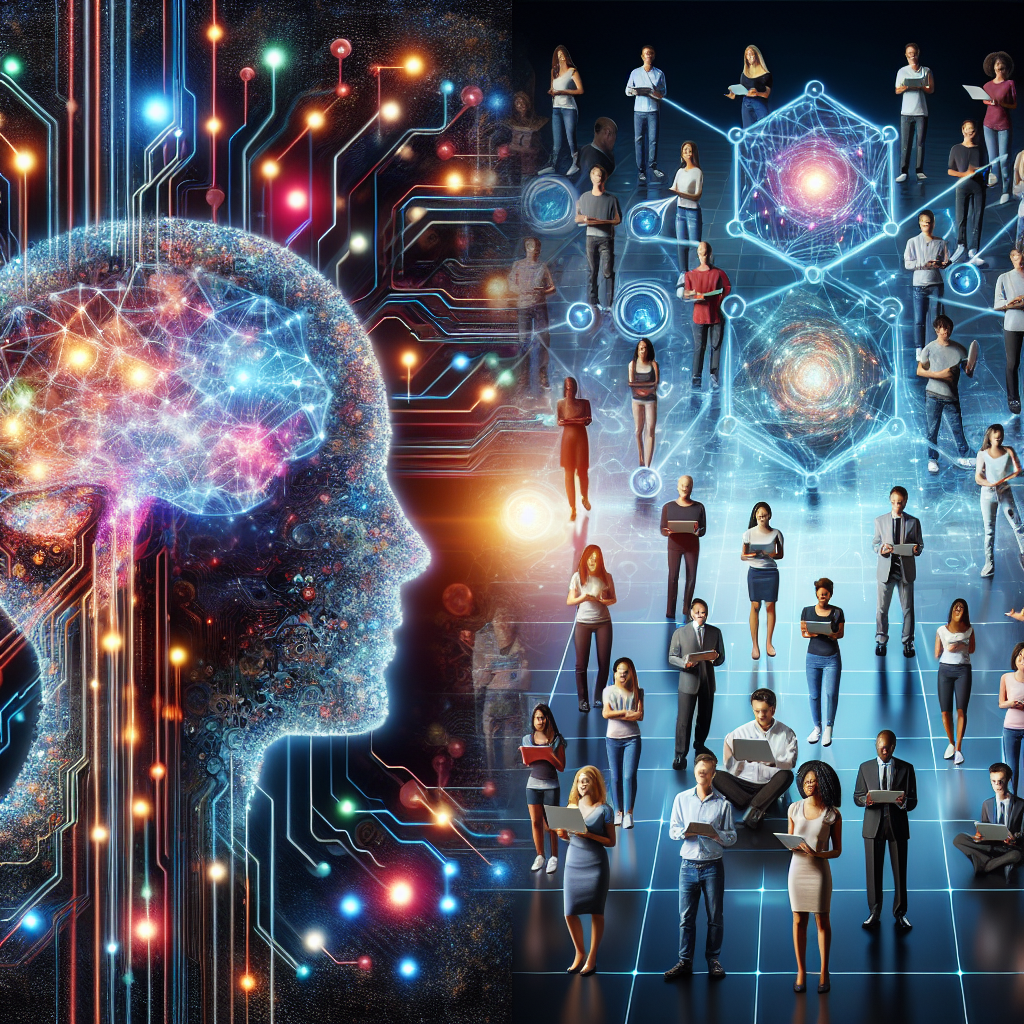In recent years, the use of artificial intelligence (AI) in education has been gaining traction as a powerful tool for personalizing learning experiences. AI solutions can help educators tailor lessons to meet the individual needs and learning styles of each student, ultimately improving student outcomes and engagement. In this article, we will explore how AI can be leveraged for personalized learning and discuss some frequently asked questions about this innovative approach to education.
AI has the potential to revolutionize the way students learn by providing personalized feedback, adaptive learning paths, and real-time support. By analyzing data from students’ interactions with learning materials, AI can identify areas where students are struggling and provide targeted interventions to help them overcome challenges. This personalized approach to learning can help students stay engaged and motivated, leading to improved academic performance.
One of the key benefits of using AI for personalized learning is its ability to adapt to each student’s unique learning needs. Traditional one-size-fits-all approaches to education can leave some students behind, as they may not receive the support and resources they need to succeed. AI solutions can help bridge this gap by providing customized learning experiences that cater to each student’s strengths, weaknesses, and interests.
AI can also help educators track student progress more efficiently and accurately. By analyzing data on student performance, AI can provide insights into how students are learning and identify areas for improvement. This data-driven approach to education can help educators make more informed decisions about how to support their students and tailor instruction to meet their individual needs.
Another advantage of leveraging AI for personalized learning is the ability to provide real-time support to students. AI-powered chatbots and virtual tutors can offer immediate feedback and guidance to students as they work through assignments and projects. This instant support can help students stay on track and address any challenges they may encounter in their learning journey.
In addition to supporting students, AI can also assist educators in designing and delivering personalized learning experiences. AI-powered tools can help teachers create adaptive learning pathways, recommend resources and activities based on student performance, and automate administrative tasks. By streamlining these processes, educators can focus more on providing personalized support to their students and fostering a positive learning environment.
Despite the promising benefits of AI for personalized learning, there are also some challenges and considerations to keep in mind. Privacy and data security are important concerns when using AI in education, as sensitive student data must be handled with care to protect student privacy. Educators and edtech companies must ensure that they are compliant with data protection regulations and take steps to safeguard student information.
Another challenge is the need for educators to receive adequate training and support in using AI tools effectively. While AI can enhance the learning experience, educators must be equipped with the knowledge and skills to integrate these tools into their teaching practices and make the most of their benefits. Professional development opportunities and ongoing support are crucial to help educators leverage AI for personalized learning successfully.
Now, let’s address some frequently asked questions about leveraging AI solutions for personalized learning:
1. How can AI personalize learning for students?
AI can personalize learning for students by analyzing data on their performance, preferences, and learning styles. By identifying patterns and trends in this data, AI can create customized learning pathways, recommend resources and activities, and provide targeted interventions to help students succeed.
2. What are some examples of AI tools used for personalized learning?
Some examples of AI tools used for personalized learning include adaptive learning platforms, virtual tutors, chatbots, and recommendation engines. These tools can help students receive personalized feedback, support, and resources tailored to their individual needs.
3. How can educators integrate AI into their teaching practices?
Educators can integrate AI into their teaching practices by using AI-powered tools to design personalized learning experiences, track student progress, and provide real-time support. By incorporating AI into their instruction, educators can enhance the learning experience and support their students more effectively.
4. What are the benefits of using AI for personalized learning?
The benefits of using AI for personalized learning include improved student outcomes, increased engagement and motivation, and more efficient tracking of student progress. AI can help educators tailor instruction to meet the individual needs of each student, ultimately leading to better academic performance and a positive learning experience.
In conclusion, leveraging AI solutions for personalized learning has the potential to transform the way students learn and educators teach. By providing customized learning experiences, real-time support, and data-driven insights, AI can help students achieve their full potential and succeed in their academic pursuits. While there are challenges to consider, such as privacy and training, the benefits of using AI for personalized learning are clear. As technology continues to advance, AI will play an increasingly important role in shaping the future of education and empowering students to learn in new and innovative ways.

